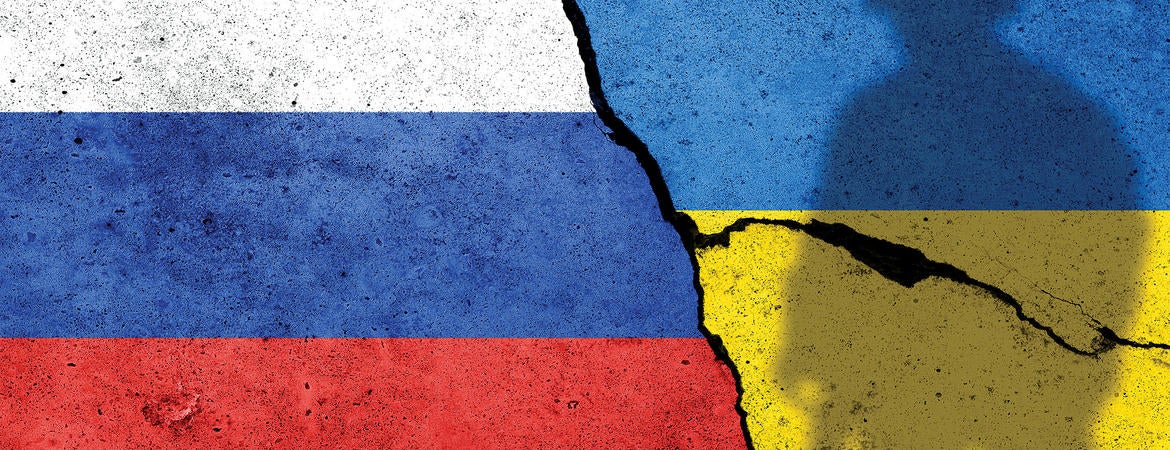
Wednesday, we asked UC Riverside Professor and leading Ukraine-Russia expert Paul D'Anieri to weigh in on breaking developments related to a 15-point peace plan being discussed that could end the month-long war between Ukraine and Russia. The conditions would surround Ukrainian neutrality — with a peace plan's fate dependent on what that means to Ukraine, Russia, and even the West.
D'Anieri wrote the 2019 book “Ukraine and Russia,” which is currently Amazon's top-selling international relations book. He also authored a 2007 book, “Understanding Ukrainian Politics: Power, Politics and Institutional Design.” For the 2017-18 academic year, he served as a fellow in the Harvard University Ukrainian Research Institution. He is a professor of political science and public policy.
Q: What does Ukrainian neutrality mean?
A: That is likely to be a topic of intense negotiation. If Russia will accept a formula that defines neutrality as not joining a military alliance, such as NATO, I think Ukraine would accept that. President Zelensky has signaled that he recognizes that NATO will not admit Ukraine and that he is willing therefore to negotiate this possibility away. But if neutrality means that Ukraine is “disarmed,” as Russia has demanded, or that it limits Ukraine’s interaction with the European Union, then Ukraine will likely resist. Ukraine will want to be an “armed neutral,” along the lines that Sweden and Switzerland have been in recent decades — neutral but fully capable of defending themselves.
Q: Does a Russian withdrawal in exchange for Ukrainian neutrality and limited Ukrainian armed forces amount to the gains Putin aspired to at the outset?
A: It is hard to know exactly what the goals were at the outset, but the answer appears to be no. Russia’s goal has not been a neutral Ukraine, but a Ukraine controlled by Russia. It is worth noting that prior to Russia’s invasion in 2014, Ukraine had “non-bloc status” (neutrality) written into its constitution.
Q: For Russia to withdraw from Ukraine, how important is it for Putin to save face? And how does he do that?
A: An agreement on Ukraine’s neutrality would, in large part, help Putin claim that Russia had gotten what it has wanted all along. Russia is also likely to insist on Ukraine’s recognition of Russian sovereignty over Crime and on Russia gaining the regions of Donetsk and Luhansk. That would bolster a claim by Putin that the war constituted a victory by Russia.
Q: If the Russians withdraw today, how long-lasting are the impacts to its reputation? How quickly will the economic sanctions likely disappear?
A: It will be interesting to see whether Russia insists that an end of sanctions be part of a peace agreement. Doing so would necessitate bringing the US and EU states (and potentially others) into the negotiations. That might give the West some leverage to push back, for example, on the definition of neutrality. I expect that the West would only remove sanctions for a peace agreement, not for a cease fire.




